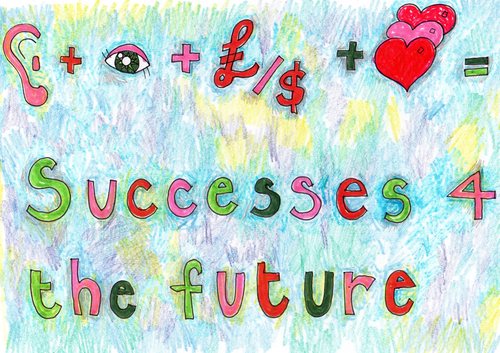PeerReach is a pretty cool tool you can use to understand your Twitter following by peer group, quality, country etc.. and also it allows you to dee the most influential people who are following you by ‘Rank’ so you can follow them back. I have to say its a pretty useful tool, somewhat bringing order out of chaos given that anyone can follow anyone on social media today, so you really end up not knowing the make up of that following , who your content resonates with and what following / influence they in turn have. The chart below is a breakdown of my following by PeerReach’s quality metric.continue reading »

Lately I’ve had the luck to be approached by a number of startup entrepreneurs wanting to get some insight or advice from my learnings at PeoplePerHour. The first thing I always say is my no 1 learning myself : listen to advice, but don’t be afraid to act differently. Advisors will be wrong more often that great entrepreneurs as they know their business better than any other. So always take it with a pinch of salt. Same applies here.
That said, there are a few basics which I do believe are very transferrable across most businesses and especially online, regardless of the sector. And its these basics that I see missing more of then than not. Entrepreneurs can often be victims of what makes them entrepreneurs – passion, vision, and hunger. They are impatient by nature and they jump in.
Below are what I think the most important things to think through before you even start, and in this order.
1. Figure out your unit economics first
This is probably the most important starting point for me. Often neglected. Don’t just jump in to a business with wishful thinking check the unit economics to make sure you can acquire customers profitably and scale.continue reading »

Businesses exist to solve problems. This weekend I was at SWSXi where I had luck to meet and watch some of the top entrepreneurs in the world talk about the problems they solved, those that they didn’t get round to solving and are fixated on next. And all the while I kept thinking: how does this apply to our business at PeoplePerHour? And more importantly how does that form a coherent step by step strategy to win? And how are we executing towards it?
Below I summarize my thoughts drawing on some of the insight I gathered at SWSXi and applying our experience at PPH to date.
I believe this applies to any marketplace business. The problems we exist to solve are these 3 and in this sequence.
1. Distribution
Marketplaces exist first and foremost to aggregate and distribute content that’s ready for collaborative consumption (whether that’s a display of your spare room on Airbnb, your grandmas hand knitted sweater on Etsy, your unused car on Zipcar, your spare cash on Zopa or your skills and spare time on PeoplePerHour)continue reading »
Building a startup is like building a family. You bond with people in ways drastically different to a normal job. One of the thing that saddens me the most is when some of those early members of the family depart. It needs to happen, its part of the growing up process, people ‘graduate’ just like in school, but its one of the toughest things for a founder to watch. continue reading »

Put a few entrepreneurs in a room and you’ll find the topic of conversation will inevitably gravitate to who’s done more screw ups than the other. I’ve been in that room enough times to know that after a while it’s the same record all over again. I share with you below the 10 most frequent, which also reflect my experience:
1.Hiring too quickly
As an entrepreneur you are naturally eager to move fast and build a big business. Not only that but you are by nature impatient, no matter how fast you’re moving. That’s partly what makes you who you are; and why you don’t fit into the normal routine of a corporate job.
Inevitably you make the mistake of hiring someone too quickly that you shouldn’t have. Not only that, you hire them against your instinct. That niggling hunch that there’s something about them you don’t like, but you are conscious of being too fussy, too slow, too much in pain to say no.
Every one of these cases backfires multifold. And in some cases can bring your business to a grind. Just don’t do it. Listen to your hunch. Take your time on hiring – it’s the single most important investment you make. Do it carefully. continue reading »
Hiring is one of the most important skills in being an entrepreneur. And no one ever gets its all right. I’ve now been an entrepreneur for 8 years and I can tell you if you manage to attract and retain a handful of truly world class people you are lucky and onto a winner.
A key lesson I’ve learn is that people’s qualities can broadly be split into two categories. Process and Content.
Content is the thing you produce in whatever vertical function you are in. If you’re a marketer it’s the stuff that will attract and retain new customers. If you’re in finance it’s the quality of your numbers and analysis. If you’re in product it’s the stuff you build and how it impacts your users.
Content is the real deal. It’s defines the quality of what you actually ship. But here’s the thing. For content to be great it needs process. Especially as you grow. And very few people I’ve met are actually world class at both.continue reading »
Marketplaces are remarkable entities. As they growth they develop a mind of their own. Like an ant colony. They develop their own behavior and set of rules. And as they grow the entrepreneur has less and less power to giver it.
But fundamentally what drives marketplaces is their failure to do what is their exact purpose: to create a ‘match’ between the two parties, supply and demand. It’s their imbalance that drives them and creates the rules of engagement.
Am architects of a marketplace has 3 main levers to pull; and these main levers are all aimed at constantly trying to rebalance and imbalanced marketplace. That’s the name of the game.
By skillfully maneuvering these three, and the many moving parts within each of them, a successful marketplace emerges and grows. And as it grows the network effects get stronger until at some point it overtakes the architect’s power to do very much.
Here I analyse these three levers and I draw on one very interesting analogy which – though seemingly wacky – has a lot of truth in it and has always fascinated me. The behaviour of marketplaces has stark similarities to dating. Why dating as an analogy? There’s probably more analogies to be made to surface the power of these 3 levers, economic policy making is another. But far more people relate to dating than policy making. Plus its far more interesting Jcontinue reading »
One of the best pieces of advice I never had is this: cherish your low moments because those are the ones that define you.
You don’t get to go through a startup experience without coming out with a few scars. To say the least. As the last 8 years of being an entrepreneur have taught me, what makes you who you are is what you do in those low moments.
Here’s some of my key lessons:continue reading »